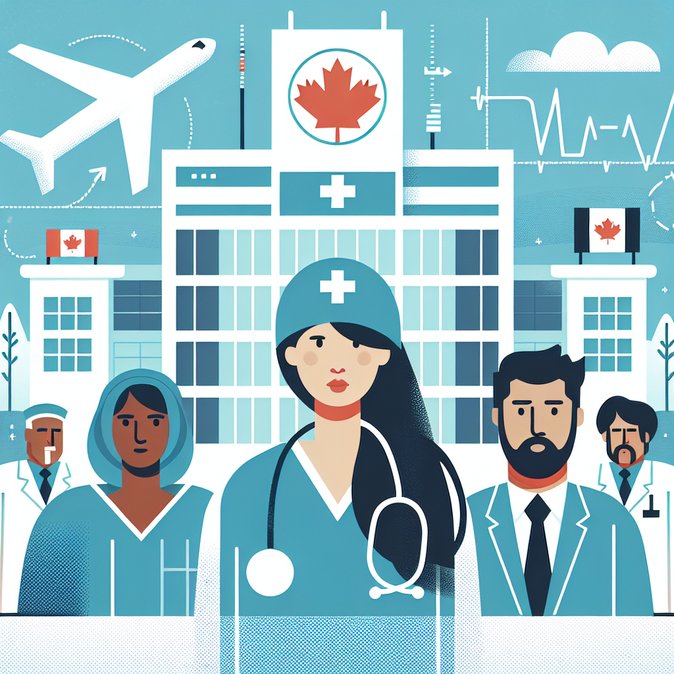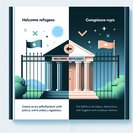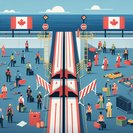
Immigration, Refugees and Citizenship Canada (IRCC) has doubled-down on its strategy of occupation-specific invitations with a new Express Entry draw dedicated to healthcare and social-services practitioners. On 14 November the department issued 3,500 Invitations to Apply (ITAs) to candidates whose primary occupations include nursing, social work, medical laboratory technology, community service work and related fields. The minimum Comprehensive Ranking System (CRS) cut-off fell to 462, its lowest level of the year for a category-based round.
The move is part of Ottawa’s 2025–27 immigration plan, which shifts Canada’s focus away from sheer volume toward “skills for nation-building.” Healthcare and social-assistance vacancies remain stubbornly high—Statistics Canada counted more than 120,000 open positions in September—so IRCC is using the Express Entry system to fast-track talent where shortages are most acute. Provincial health authorities and hospital networks have lobbied for a more nimble pathway after pandemic-era attrition left many facilities understaffed.
![IRCC Invites 3,500 Healthcare and Social-Services Professionals in Targeted Express Entry Draw]()
For employers, the targeted draw means relief from chronic recruiting headaches. Hospitals that struggled to hire internationally because of lengthy Labour Market Impact Assessment (LMIA) requirements can now rely on permanent-residence invitations that arrive within weeks, not months. Foreign candidates gain clarity too: if they meet the occupational code requirements and achieve a competitive CRS, the odds of selection are substantially higher than in all-program draws.
Practical steps for applicants include updating their Express Entry profiles with precise National Occupational Classification (NOC) 2021 codes and ensuring they have recent language test results and Educational Credential Assessments. Employers, meanwhile, should audit internal workforce plans to identify jobs that could be filled through future category-based rounds. IRCC has promised additional healthcare draws before year-end.
Long term, policy analysts expect Ottawa to keep healthcare and social services on the priority list until provincial vacancy rates fall below pre-pandemic levels. Combined with provincial nominee programs that offer region-specific incentives, the category-based Express Entry stream is quickly becoming the fastest route to permanent residence for internationally educated nurses, physicians, and social workers.
The move is part of Ottawa’s 2025–27 immigration plan, which shifts Canada’s focus away from sheer volume toward “skills for nation-building.” Healthcare and social-assistance vacancies remain stubbornly high—Statistics Canada counted more than 120,000 open positions in September—so IRCC is using the Express Entry system to fast-track talent where shortages are most acute. Provincial health authorities and hospital networks have lobbied for a more nimble pathway after pandemic-era attrition left many facilities understaffed.

For employers, the targeted draw means relief from chronic recruiting headaches. Hospitals that struggled to hire internationally because of lengthy Labour Market Impact Assessment (LMIA) requirements can now rely on permanent-residence invitations that arrive within weeks, not months. Foreign candidates gain clarity too: if they meet the occupational code requirements and achieve a competitive CRS, the odds of selection are substantially higher than in all-program draws.
Practical steps for applicants include updating their Express Entry profiles with precise National Occupational Classification (NOC) 2021 codes and ensuring they have recent language test results and Educational Credential Assessments. Employers, meanwhile, should audit internal workforce plans to identify jobs that could be filled through future category-based rounds. IRCC has promised additional healthcare draws before year-end.
Long term, policy analysts expect Ottawa to keep healthcare and social services on the priority list until provincial vacancy rates fall below pre-pandemic levels. Combined with provincial nominee programs that offer region-specific incentives, the category-based Express Entry stream is quickly becoming the fastest route to permanent residence for internationally educated nurses, physicians, and social workers.







